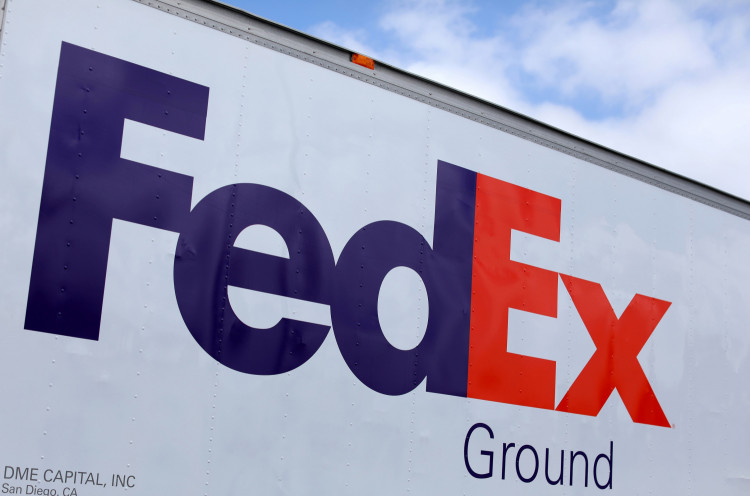FedEx Corp. (FDX) is facing increasing pressure as its latest earnings report revealed a significant miss on both profit and revenue expectations, triggering a sharp drop in its stock price. Shares of the shipping giant plummeted nearly 15% following the release of its fiscal first-quarter results, marking its biggest intraday decline in two years. The disappointing performance is being interpreted as a broader economic warning, with FedEx often seen as a bellwether due to its wide exposure to global industries, from retail to manufacturing.
For the quarter ending August 31, FedEx reported adjusted earnings per share of $3.60, falling significantly short of Wall Street's consensus estimate of $4.77. Revenue also came in below expectations, at $21.6 billion versus the forecasted $21.9 billion. CEO Raj Subramaniam acknowledged the difficulties, attributing the weaker-than-expected results to inflationary pressures on customers and a softer-than-anticipated industrial economy. "It was a challenging quarter," Subramaniam told analysts during a Thursday call.
The company also lowered its earnings guidance for the full fiscal year, projecting between $20 and $21 per share, down from its previous outlook of up to $22 per share. This conservative revision has further heightened concerns about the state of the U.S. economy, coming just after the Federal Reserve's historic interest rate cut. While the Fed had described the economy as "strong," FedEx's outlook seemed to suggest otherwise. "The magnitude of the Fed rate cuts yesterday signals the weakness of the current environment," Subramaniam said.
One of the key factors contributing to FedEx's poor performance has been the shift in consumer behavior. As inflation eats into household budgets, more customers are opting for cheaper and slower shipping options rather than FedEx's premium services. This trend also impacted its rival, United Parcel Service (UPS), earlier in the year. Brie Carere, FedEx's Chief Customer Officer, said U.S. domestic shipping volumes at its Express division fell 3% due to reduced business-to-business demand.
The drop in demand for higher-margin services like next-day or two-day shipping has been particularly painful for FedEx, which had counted on premium offerings to boost its earnings. CFO John Dietrich noted that expectations for growth in premium services revenue and profits had not materialized. "The sense of urgency isn't there to pay extra for ultra-fast shipping," said Bloomberg Intelligence analyst Lee Klaskow, pointing to the broader economic caution impacting consumer spending.
FedEx has been trying to mitigate these headwinds through aggressive cost-cutting measures. The company is in the process of integrating its Ground and Express delivery networks as part of its "Network 2.0" initiative, which is expected to generate significant savings in the long run. Subramaniam reaffirmed that the company is on track to achieve $2.2 billion in savings this fiscal year, and a total of $4 billion by next year. However, these savings have so far only partially offset the challenges posed by softer demand and cost-conscious customers.
FedEx's stock plunge is the largest since September 2022 and has spooked investors who are increasingly concerned about the broader economic outlook. The Federal Reserve's decision to cut interest rates earlier in the week underscored the growing anxiety about the U.S. economy's trajectory, especially with job gains slowing and inflation starting to cool. "This is an ominous sign for where the economy is headed," said Patrick Anderson, CEO of Anderson Economic Group, in an interview.
Analysts have responded with caution, with several cutting their price targets for FedEx. JPMorgan, Susquehanna, and Stifel were among the firms to revise their outlook on the stock, citing the challenging economic environment and the risk that FedEx's struggles may not be purely cyclical. Ravi Shanker, a Morgan Stanley analyst, lowered his price target and rating for FedEx, warning that the company's issues could be structural and persistent. "These risks may not go away soon," Shanker said in a note to investors.
Despite the bleak near-term outlook, some analysts remain optimistic about FedEx's longer-term prospects. Stephens analyst Daniel Imbro told Yahoo Finance that while FedEx's stock is under pressure, the company could represent an attractive opportunity for investors willing to take a longer view. "We have been recommending buying it here in the $250s, as we think the next 12 months offer a pretty attractive risk-reward from these levels," Imbro said.





